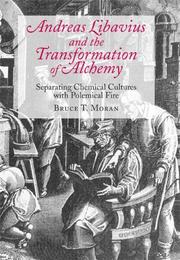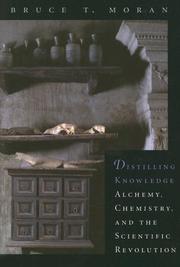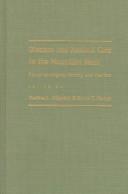| Listing 1 - 10 of 10 |
Sort by
|
Book
ISBN: 0851152856 9780851152851 Year: 1991 Publisher: Woodbridge : Boydell press,
Abstract | Keywords | Export | Availability | Bookmark
 Loading...
Loading...Choose an application
- Reference Manager
- EndNote
- RefWorks (Direct export to RefWorks)
Science [Renaissance ] --- Science de la Renaissance --- Wetenschap [Renaissance-] --- Associations, institutions, etc. --- Medicine --- Science --- Science, Renaissance. --- Technology --- History. --- Societies, etc. --- Associations, institutions, etc --- Science, Renaissance --- Applied science --- Arts, Useful --- Science, Applied --- Useful arts --- Industrial arts --- Material culture --- Natural science --- Science of science --- Sciences --- Renaissance science --- Clinical sciences --- Medical profession --- Human biology --- Life sciences --- Medical sciences --- Pathology --- Physicians --- Institutions, associations, etc. --- Networks (Associations, institutions, etc.) --- Organizations --- Voluntary associations --- Voluntary organizations --- Social groups --- Voluntarism --- History --- Societies, etc --- Europe --- Science - Europe - History. --- Technology - Europe - History. --- Medicine - Europe - History. --- Science - Europe - Societies, etc. - History. --- Technology - Europe - Societies, etc. - History. --- Medicine - Europe - Societies, etc. - History. --- Associations, institutions, etc. - Europe - History. --- Health Workforce --- Natural sciences

ISBN: 9780881353952 0881353957 Year: 2007 Publisher: Sagamore Beach, MA : Science History Publications/Watson Pub. International,
Abstract | Keywords | Export | Availability | Bookmark
 Loading...
Loading...Choose an application
- Reference Manager
- EndNote
- RefWorks (Direct export to RefWorks)
Alchemists --- Alchemy --- Alchimistes --- Alchimie --- Biography. --- History. --- Biographies --- Histoire --- Libavius, Andreas, --- History, 16th Century. --- History, 17th Century.

ISBN: 0674041224 9780674041226 9780674022492 0674014952 0674022491 9780674014954 0674014952 0674266153 9780674266155 Year: 2005 Publisher: Cambridge, MA : Harvard University Press,
Abstract | Keywords | Export | Availability | Bookmark
 Loading...
Loading...Choose an application
- Reference Manager
- EndNote
- RefWorks (Direct export to RefWorks)
Alchemy can't be science--common sense tells us as much. But perhaps common sense is not the best measure of what science is, or was. In this book, Bruce Moran looks past contemporary assumptions and prejudices to determine what alchemists were actually doing in the context of early modern science. Examining the ways alchemy and chemistry were studied and practiced between 1400 and 1700, he shows how these approaches influenced their respective practitioners' ideas about nature and shaped their inquiries into the workings of the natural world. His work sets up a dialogue between what historians have usually presented as separate spheres; here we see how alchemists and early chemists exchanged ideas and methods and in fact shared a territory between their two disciplines. Distilling Knowledge suggests that scientific revolution may wear a different appearance in different cultural contexts. The metaphor of the Scientific Revolution, Moran argues, can be expanded to make sense of alchemy and other so-called pseudo-sciences--by including a new framework in which "process can count as an object, in which making leads to learning, and in which the messiness of conflict leads to discernment." Seen on its own terms, alchemy can stand within the bounds of demonstrative science.
Chemistry --- Alchemy --- Science, Renaissance. --- Renaissance science --- Science --- History. --- Science, Renaissance --- History --- #A0509HI --- Chimie --- Alchimie --- Sciences de la Renaissance --- Histoire
Book
ISBN: 9781789141443 1789141443 Year: 2019 Publisher: London Reaktion Books
Abstract | Keywords | Export | Availability | Bookmark
 Loading...
Loading...Choose an application
- Reference Manager
- EndNote
- RefWorks (Direct export to RefWorks)
Throughout his controversial life the alchemist, physician and social radical known as Paracelsus combined traditions that were magical and empirical, scholarly and folk, learned and artisanal. He read ancient texts and then burned some of them. He endorsed both Catholic and Reformation beliefs, but believed devoutly in a female deity. He travelled constantly, learning and teaching a new form of medicine based on the experience of miners, bathers, alchemists, midwives, barber-surgeons and executioners. He argued for changes in the way the body was understood, how disease was defined and how treatments were created, but he was also moved by mystical speculations, an alchemical view of nature and an intriguing concept of creation. Bruce T. Moran tells the story of how alchemy refashioned medical practice, and brings to light the ideas, workings and major texts of an important Renaissance figure, showing how his tenacity and endurance changed the medical world for the better, and brought new perspectives to the study of nature.
Physicians --- Alchemists --- History of Medicine --- Chemists --- Philosophers --- Medicine, History --- History Medicines --- Medicine Histories --- Medicines, History --- Medicine --- history --- Paracelsus, --- Parat︠s︡elʹs, Fil. Avr. Feofrast, --- Hohenheim, Philipp Aureolus Theophrastus Bombast von, --- Bombast von Hohenheim, Philipp Aureolus Theophrastus, --- Theophrast von Hohenheim, --- Hohenheim, Theophrastus Bombastus von, --- Paracelsus, Theophrastus, --- Paracelse, --- Paracelso, --- Hohenheim, Felipe Aureolo Teofrasto Bombasto de, --- Bombast von Hohenheim, Philippus Aureolus Theophrastus, --- Von Hohenheim, Philippus Aureolus Theophrastus Bombast, --- Hohenheim, Philippus Aureolus Theophrastus Bombast von, --- パラケルスス, --- Paracelsus, Theophrastus --- History of Medicine. --- Alchemy. --- Science --- 35.01 history of chemistry. --- Alchemists. --- Physicians. --- History. --- Switzerland. --- von Hohenheim, Philippus Aureolus Theophrastus Bombastus --- von Hohenheim, Theophrast
Digital
ISBN: 9780674041226 Year: 2021 Publisher: Cambridge, Mass. Harvard University Press
Abstract | Keywords | Export | Availability | Bookmark
 Loading...
Loading...Choose an application
- Reference Manager
- EndNote
- RefWorks (Direct export to RefWorks)

ISBN: 0874173817 9780874173819 0874173043 Year: 1998 Publisher: Reno : University of Nevada Press,
Abstract | Keywords | Export | Availability | Bookmark
 Loading...
Loading...Choose an application
- Reference Manager
- EndNote
- RefWorks (Direct export to RefWorks)
Medicine --- History of Medicine --- History --- Humanities --- Health & Biological Sciences --- Aspects, Historical --- Historical Aspects --- Aspect, Historical --- Historical Aspect --- Histories --- Medicine, History --- History Medicines --- Medicine Histories --- Medicines, History --- Health Workforce --- History. --- history --- History of Medicine. --- Humanities.
Book
ISBN: 9781612481340 1612481345 0271091258 1612481353 Year: 2015 Volume: 15 Publisher: Kirksville: Truman State University Press,
Abstract | Keywords | Export | Availability | Bookmark
 Loading...
Loading...Choose an application
- Reference Manager
- EndNote
- RefWorks (Direct export to RefWorks)
Chemistry --- History. --- Debus, Allen G. --- Paracelsus, --- Chemistry - History. --- Paracelsus, - 1493-1541.
Book

ISBN: 1474294928 9781474294928 9781474294539 9781474294546 9781474294591 9781474294652 9781474294805 9781474294812 1474294537 1474294545 1474294596 1474294650 1474294804 1474294812 9781350251458 9781350251472 9781350251496 9781350251489 9781350251519 9781350251502 9781350251533 9781350251526 9781350251557 9781350251540 9781350251571 9781350251564 1350251453 1474203744 135025147X 9781474203746 Year: 2022 Publisher: London : Bloomsbury Publishing,
Abstract | Keywords | Export | Availability | Bookmark
 Loading...
Loading...Choose an application
- Reference Manager
- EndNote
- RefWorks (Direct export to RefWorks)
"A Cultural History of Chemistry in Antiquity covers the period from 3000 BCE to 600 CE, ranging across the civilizations of the Mediterranean and Near East. Over this long period, chemical artisans, recipes, and ideas were exchanged between Mesopotamia, Egypt, Phoenicia, Greece, Rome, and Byzantium. The flowering of alchemy in the Middle and Early Modern Ages had its roots in the chemical arts of antiquity. This study presents the first synthesis of this epoch, examining the centrality of intense exchange and interconnectivity to the discovery and development of sources, techniques, materials, and instruments"--
Chemistry --- History. --- Social aspects. --- History of chemistry --- Conservation. Restoration --- World history --- History of civilization --- Ancient history --- anno 500-1499 --- anno 1500-1599 --- anno 1600-1699 --- anno 1700-1799 --- anno 1800-1899 --- anno 1900-1999 --- Physical sciences
Book

ISBN: 9780271091259 Year: 2021 Publisher: University Park, PA
Abstract | Keywords | Export | Availability | Bookmark
 Loading...
Loading...Choose an application
- Reference Manager
- EndNote
- RefWorks (Direct export to RefWorks)
Digital

ISBN: 9780271091259 Year: 2021 Publisher: University Park, Pa Penn State University Press
Abstract | Keywords | Export | Availability | Bookmark
 Loading...
Loading...Choose an application
- Reference Manager
- EndNote
- RefWorks (Direct export to RefWorks)
| Listing 1 - 10 of 10 |
Sort by
|

 Search
Search Feedback
Feedback About UniCat
About UniCat  Help
Help News
News